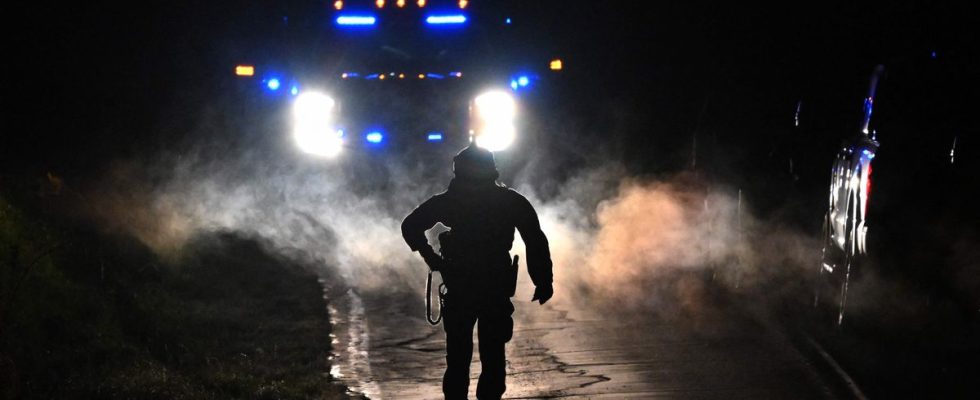Did you miss the news this morning? We have put together a summary to help you see things more clearly.
Killing in the United States: The suspect still not found, he apparently left a “suicide note”
A gigantic manhunt. A suspect untraceable. Residents on edge. A bereaved and confined city. More than 24 hours after the tragedy that struck Lewiston, Maine, the hunt that mobilized police and FBI agents in a region covered in forests and rivers had yielded nothing on Thursday evening. Robert Card, a 40-year-old army reservist wanted for a double shooting that left 18 dead and 13 injured at a bowling alley and a bar the day before, managed to disappear into thin air. However, it cannot be ruled out that he is dead: according to information from ABC News which has not yet been confirmed by the authorities, a “suicide note” (farewell letter) was found in one of the residences. families searched.
Elisabeth Borne reveals her measures for working-class neighborhoods
After providing a security response to the summer riots on Thursday, Elisabeth Borne must chair an interministerial committee of cities (CIV) on Friday in Chanteloup-les-Vignes, from which more social and structural measures are expected to address the difficulties of working-class neighborhoods. Housing, employment, education, ecology, sport… this meeting should make it possible to address the many aspects of city policy, designed to reduce inequalities between priority neighborhoods (QPV) and the rest of the territory. The Prime Minister will meet elected officials in Chanteloup-les-Vignes, a popular commune in Yvelines where half of the inhabitants live in a priority district, but spared from the urban violence triggered at the beginning of the summer by the death of young Nahel, killed by a police officer during a traffic stop.
Nuclear waste in Bure: The Constitutional Council rules on the rights of future generations
The Constitutional Council rules on Friday on the rights of future generations invoked by opponents of the Cigéo center project for the burial of the most radioactive waste in Bure (Meuse) from nuclear power plants, in a decision which must be a landmark for the protection of the environment. Validated by the government which declared it of public utility in 2022, the Cigéo geological storage project 500 meters underground has already completed numerous stages, although contested for more than twenty years. Latest appeal to date: the declaration of public utility was attacked before the Council of State by local residents, 14 local and 7 national organizations such as Attac, France Nature Environnement, Greenpeace or even “Sortir du nuclear”. This appeal was an opportunity to pose a Priority Question of Constitutionality (QPC) to the Constitutional Council to verify whether the method of waste treatment planned in the clayey subsoil of Bure respects the constitutional principles, namely those set out in the preamble. of the 2005 Environmental Charter.

